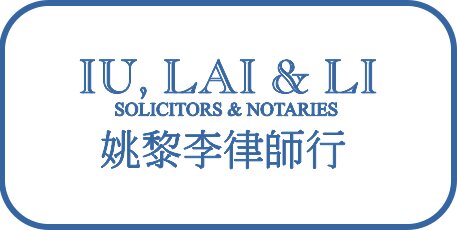Best Securities Lawyers in Admiralty
Share your needs with us, get contacted by law firms.
Free. Takes 2 min.
List of the best lawyers in Admiralty, Hong Kong
About Securities Law in Admiralty, Hong Kong
Securities law in Admiralty, Hong Kong governs the issuance and trading of securities, which include stocks, bonds, and other financial instruments. These laws are designed to protect investors and maintain the integrity of the financial markets in Hong Kong.
Why You May Need a Lawyer
You may need a lawyer for securities law in Admiralty, Hong Kong if you are facing allegations of securities fraud, need help with compliance issues, or require assistance with mergers and acquisitions involving securities. A lawyer can provide valuable guidance and representation to ensure your rights are protected.
Local Laws Overview
Key aspects of local laws relevant to securities in Admiralty, Hong Kong include the Securities and Futures Ordinance, which regulates the securities industry in Hong Kong, and the regulations set forth by the Securities and Futures Commission (SFC). These laws aim to maintain market integrity, protect investors, and promote transparency.
Frequently Asked Questions
1. What are the main types of securities regulated in Hong Kong?
In Hong Kong, the main types of securities regulated include stocks, bonds, and collective investment schemes such as mutual funds.
2. How can I verify if a securities firm is licensed in Hong Kong?
You can check the Securities and Futures Commission (SFC) website for a list of licensed securities firms in Hong Kong.
3. What are the penalties for securities fraud in Hong Kong?
Penalties for securities fraud in Hong Kong can include fines, imprisonment, and civil liabilities. The severity of the penalty depends on the nature of the offense.
4. What is insider trading, and is it illegal in Hong Kong?
Insider trading involves trading securities based on nonpublic, material information. It is illegal in Hong Kong and can result in severe penalties.
5. How can I report securities misconduct in Hong Kong?
You can report securities misconduct to the Securities and Futures Commission (SFC) through their website or by contacting their enforcement division.
6. What is the role of the Securities and Futures Commission (SFC) in Hong Kong?
The SFC is the primary regulatory body overseeing the securities industry in Hong Kong. They are responsible for licensing securities firms, enforcing regulations, and protecting investors.
7. Can I file a securities lawsuit in Hong Kong as a foreign investor?
Yes, foreign investors can file securities lawsuits in Hong Kong. It is advisable to seek legal representation familiar with Hong Kong's securities laws.
8. What are the key elements of a securities offering document in Hong Kong?
A securities offering document in Hong Kong typically includes information about the issuer, the securities being offered, risk factors, financial statements, and disclosures required by the SFC.
9. Are there alternative dispute resolution mechanisms for securities disputes in Hong Kong?
Yes, alternative dispute resolution mechanisms such as mediation and arbitration are available for securities disputes in Hong Kong. These can offer a quicker and more cost-effective resolution compared to litigation.
10. How can I stay informed about changes in securities laws in Hong Kong?
You can stay informed about changes in securities laws in Hong Kong by regularly checking the Securities and Futures Commission (SFC) website, subscribing to industry newsletters, and consulting with legal professionals specializing in securities law.
Additional Resources
For additional resources and information related to securities in Admiralty, Hong Kong, you can visit the Securities and Futures Commission (SFC) website or seek guidance from legal organizations such as the Hong Kong Bar Association.
Next Steps
If you require legal assistance in securities law in Admiralty, Hong Kong, it is recommended to consult with a qualified securities lawyer who can provide tailored advice based on your specific situation. Be sure to gather all relevant documents and information before meeting with a lawyer to maximize the efficiency of the consultation process.
Lawzana helps you find the best lawyers and law firms in Admiralty through a curated and pre-screened list of qualified legal professionals. Our platform offers rankings and detailed profiles of attorneys and law firms, allowing you to compare based on practice areas, including Securities, experience, and client feedback.
Each profile includes a description of the firm's areas of practice, client reviews, team members and partners, year of establishment, spoken languages, office locations, contact information, social media presence, and any published articles or resources. Most firms on our platform speak English and are experienced in both local and international legal matters.
Get a quote from top-rated law firms in Admiralty, Hong Kong — quickly, securely, and without unnecessary hassle.
Disclaimer:
The information provided on this page is for general informational purposes only and does not constitute legal advice. While we strive to ensure the accuracy and relevance of the content, legal information may change over time, and interpretations of the law can vary. You should always consult with a qualified legal professional for advice specific to your situation.
We disclaim all liability for actions taken or not taken based on the content of this page. If you believe any information is incorrect or outdated, please contact us, and we will review and update it where appropriate.











